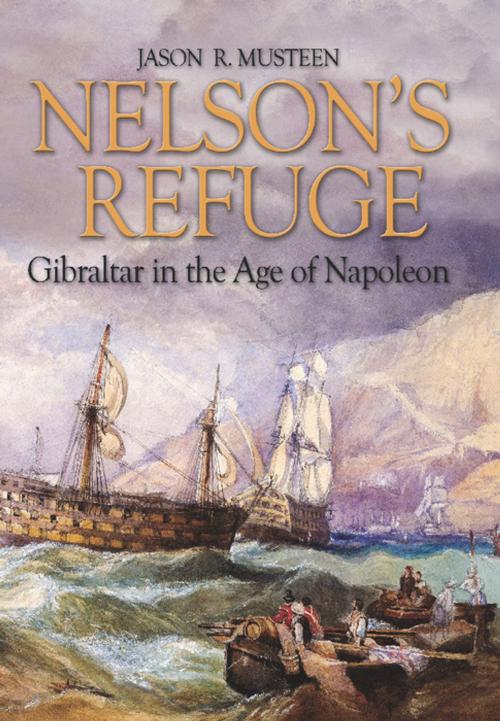| Author: | Jason R. Musteen | ISBN: | 9781612510842 |
| Publisher: | Naval Institute Press | Publication: | October 15, 2011 |
| Imprint: | Naval Institute Press | Language: | English |
| Author: | Jason R. Musteen |
| ISBN: | 9781612510842 |
| Publisher: | Naval Institute Press |
| Publication: | October 15, 2011 |
| Imprint: | Naval Institute Press |
| Language: | English |
Since its capture from Spain in 1704, Gibraltar has been one of Great Britain’s most legendary citadels. As the gatekeeper of the Mediterranean Sea, its commanding position has shaped the history of the region and surrounding nations, including modern Britain. The fortress, its garrison, and its leaders were witness to and participant in both the rise and the fall of the first emperor of France, whose attempt at European conquest gave birth to the ascendancy of Gibraltar’s true importance and its position in world affairs. However, despite its 2,500 year old history, no study has existed that examines the role of the fortress during the Napoleonic Wars (1793-1815). It was during that important period that the well-known defensive might of Gibraltar was converted to offensive potential for the British army and was united with the previously under appreciated strategic value of the Rock for the Royal Navy. That combination of military and naval might transformed Gibraltar into a base capable of meeting the various demands in the Mediterranean for many years to come.
Nelson’s Refuge examines Gibraltar’s growth during the two decade struggle with Napoleonic France. As a forward base for the operations of the Royal Navy and Army, the peninsula allowed Horatio Nelson to achieve his victories at the Nile and at Trafalgar. The book also describes how Gibraltar served as the base of secret negotiations that brought Spain to the British side during the Peninsular War and further served as the most forward operations base for the British in that war.
Nelson’s Refuge examines Gibraltar’s growth during the two decade struggle with Napoleonic France. As a forward base for the operations of the Royal Navy and Army, the peninsula allowed Horatio Nelson to achieve his victories at the Nile and at Trafalgar. The book also describes how Gibraltar served as the base of secret negotiations that brought Spain to the British side during the Peninsular War and further served as the most forward operations base for the British in that war.
Since its capture from Spain in 1704, Gibraltar has been one of Great Britain’s most legendary citadels. As the gatekeeper of the Mediterranean Sea, its commanding position has shaped the history of the region and surrounding nations, including modern Britain. The fortress, its garrison, and its leaders were witness to and participant in both the rise and the fall of the first emperor of France, whose attempt at European conquest gave birth to the ascendancy of Gibraltar’s true importance and its position in world affairs. However, despite its 2,500 year old history, no study has existed that examines the role of the fortress during the Napoleonic Wars (1793-1815). It was during that important period that the well-known defensive might of Gibraltar was converted to offensive potential for the British army and was united with the previously under appreciated strategic value of the Rock for the Royal Navy. That combination of military and naval might transformed Gibraltar into a base capable of meeting the various demands in the Mediterranean for many years to come.
Nelson’s Refuge examines Gibraltar’s growth during the two decade struggle with Napoleonic France. As a forward base for the operations of the Royal Navy and Army, the peninsula allowed Horatio Nelson to achieve his victories at the Nile and at Trafalgar. The book also describes how Gibraltar served as the base of secret negotiations that brought Spain to the British side during the Peninsular War and further served as the most forward operations base for the British in that war.
Nelson’s Refuge examines Gibraltar’s growth during the two decade struggle with Napoleonic France. As a forward base for the operations of the Royal Navy and Army, the peninsula allowed Horatio Nelson to achieve his victories at the Nile and at Trafalgar. The book also describes how Gibraltar served as the base of secret negotiations that brought Spain to the British side during the Peninsular War and further served as the most forward operations base for the British in that war.















